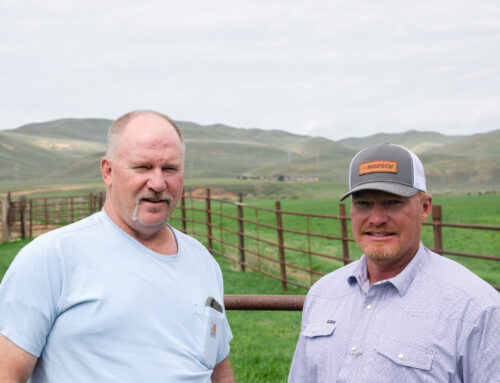Federal judge strikes down Oregon pot labor law as unconstitutional
May 21, 2025
A federal judge on Tuesday barred enforcement of Measure 119 passed by Oregon voters last year to require cannabis businesses to set up labor agreements for their workers as a condition of licensing or a license renewal.
U.S. District Judge Michael H. Simon found the measure violates the free speech of cannabis business owners and is preempted by federal labor law.
Measure 119, which went into effect Dec. 5, directs cannabis retailers and processors to remain neutral regarding a labor organization’s communications with their employees yet would punish the business owners if an agreement isn’t executed.
Even if the businesses have no employees or if their workers don’t want to be in a union, the requirement stands.
The National Labor Relations Act allows an employer to express “any views, argument or opinion” that are not threatening or coercive, without facing an unfair labor practice claim.
Ascend, a marijuana retailer in Northeast Portland, and Bubble’s Hash, a processor that makes marijuana into edibles and concentrates for sale in Southwest Portland, filed the suit challenging the measure. The ruling falls two days before Bubble’s Hash license is due for renewal.
“Measure 119 does not distinguish between permissible employer speech and threatening or coercive speech,” Simon wrote in a 23-page opinion.
“Measure 119 seeks to regulate — and, indeed, forbid — certain truthful, non-deceptive, non-coercive speech about unionization, which conflicts with Congress’s intent to allow ‘uninhibited, robust, and wide-open debate in labor disputes,’” he wrote.
State lawyers who defended the measure had argued that new law doesn’t curb employer speech because employers can still express opinions about unions as long as they’re “neutral.”
But Simon found that argument “not persuasive.”
He ruled the measure violates the First Amendment rights of the two Portland cannabis businesses that sued the state.
The state lawyers “do not explain how an employer can remain ‘neutral’ with respect to union representatives communicating with its employees while still being free to express its opinions about unionization,” the judge wrote.
“Measure 119 is not limited to restricting only threatening, coercive, false, or misleading speech, but instead prohibits all speech by employers that is not ‘neutral’ toward unionization,” Simon wrote.
The judge also found that the business owners “reasonably fear” enforcement of the measure. If they fail to comply, they could lose their entire business, and if they abide by the measure, they could face “serious costs in the form of unfair bargaining leverage with labor organizations,” he wrote.
Ascend has argued that only two labor organizations in Oregon have authority to sign such a labor peace agreement. While it attempted to negotiate with both, each made demands that Ascend considers unreasonable, Simon’s opinion noted.
The two labor organizations in the state that are designated to enter into the measure’s “labor peace agreements” are UCFW 555 and the Teamsters, although Oregon has more than 200 local unions, lawyers for the businesses said in court.
The two businesses “face a choice of losing their businesses or complying with an unconstitutional law. This is irreparable harm,” Simon ruled.
He entered a permanent injunction barring the enforcement of Measure 119.
Ascend does well over $500,000 in annual sales and losing its license would cause eight employees to lose their jobs, health benefits, college reimbursement and company car to attend college, its lawyers said.
On Feb. 1, Ascend submitted its license renewal application and paid the required fee to the Oregon Liquor and Cannabis Commission. It did not include a signed labor peace agreement or indicate one had been signed. Three days later, it was notified that its application was incomplete.
On Feb. 10, the state commission informed Ascend that it “cannot process” its license renewal, “until you have uploaded a signed labor peace agreement or attestation,” according to the opinion.
Bubble’s Hash has two employees and paid about $435,000 in start-up costs. The business was concerned because its license expires on May 22. The business called UFCW 555, but the union didn’t respond, according to court briefs.
Since Bubble’s Hash had filed a separate complaint with the National Labor Relations Board, which said it lacked authority to hear the matter, the judge referred only to Ascend in evaluating whether Measure 119 was preempted by the National Labor Relations Act.
Lawyers who represented the two businesses in the suit said they’re pleased with the ruling.
“This case is poised to have far-reaching impacts, as many states are considering imposing similar requirements not only on cannabis licensees, but also in other sectors,” said lawyers Alexander Wheatley and Stephen Scott, in a statement. “This decision helps maintain the proper balance of power between labor and management.”
During a hearing last month, the judge said he understood that workers in the cash-driven cannabis industry are in greater danger than typical workers, and he recognized the “historical and valuable role” that unions play. But he said he was struggling with the ambiguity of the measure’s text regarding what it would allow an employer to say or do.
Oregon’s Department of Justice did not immediately respond to a message seeking comment. It has not yet said whether the state intends to appeal Simon’s ruling.
— Maxine Bernstein covers federal court and criminal justice. Reach her at 503-221-8212, mbernstein@oregonian.com, follow her on X @maxoregonian, on Bluesky @maxbernstein.bsky.social or on LinkedIn.
Search
RECENT PRESS RELEASES
Related Post



